News & Events
- Zimbabwe
- Work
- Voice & agency
- Sierra Leone
- Nepal
- Malawi
- Kenya
- India
- Health & wellbeing
- Governance & accountability
- Feelings
- Covid-19
- Bangladesh
- Andhra Pradesh
- All News & Events

Visual Essay: Scaling the physical address system to Mathare 4B settlement
This visual essay by Jacob Omondi and Sarah Ouma explores the impact of introducing a physical addressing system in Mathare 4B settlement in Nairobi, Kenya, highlighting the contributions of young people and women, and how this initiative enhances healthcare delivery. Through participatory settlement profiling and visual storytelling, we illustrate how community-led efforts and the integration of […]
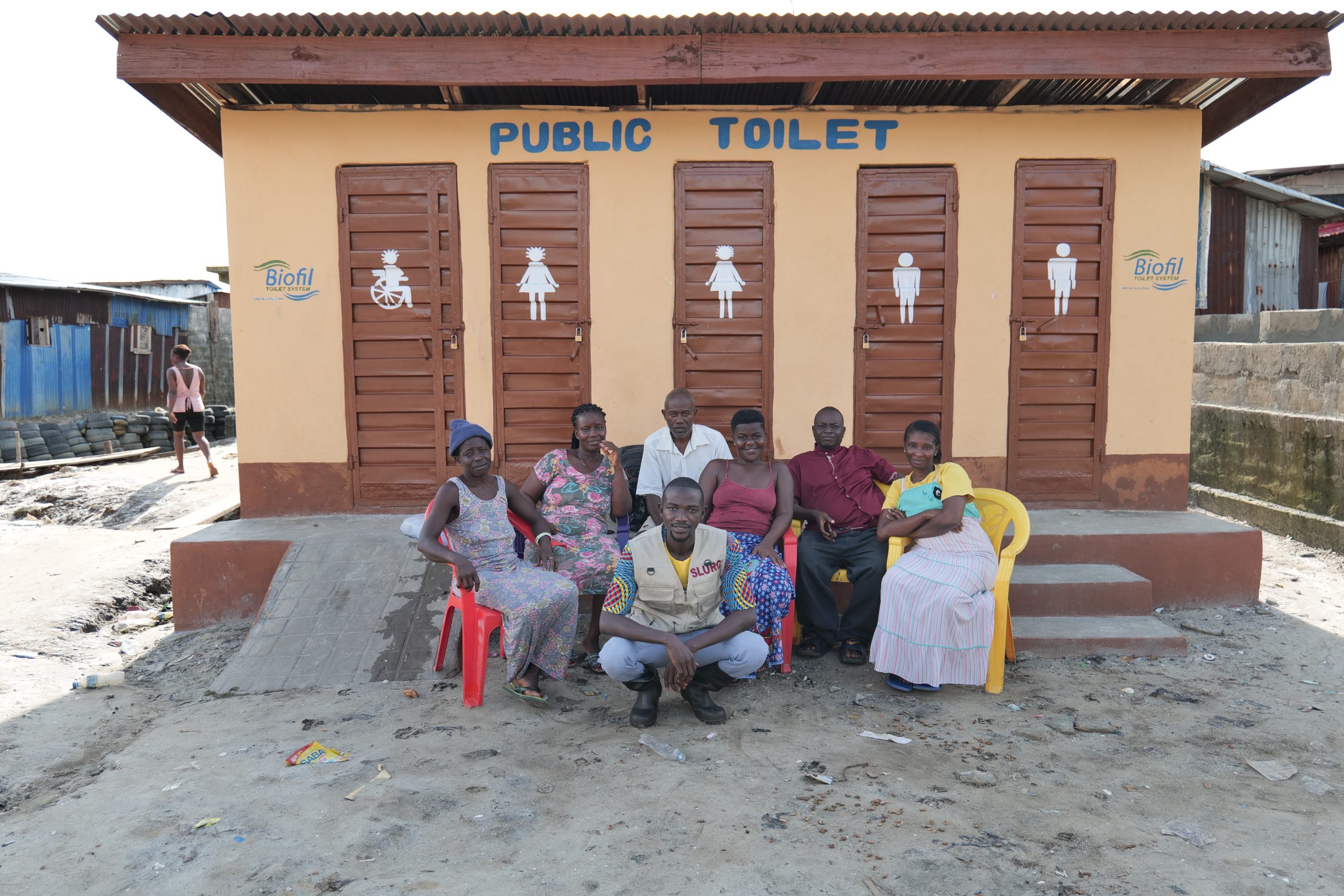
Inclusive sanitation: Working with informal settlement residents in Freetown, Sierra Leone to address sanitation challenges
Read about the inclusive community based approach to addressing sanitation issues in Freetown informal settlements in this blog by Sullaiman Fullah, Ishmail Conteh, Dora Vangahun and Abu Conteh. In the informal settlements of Freetown sanitation remains a huge challenge, particularly access to decent toilets. This can be due to constraints on digging land (in hilly […]
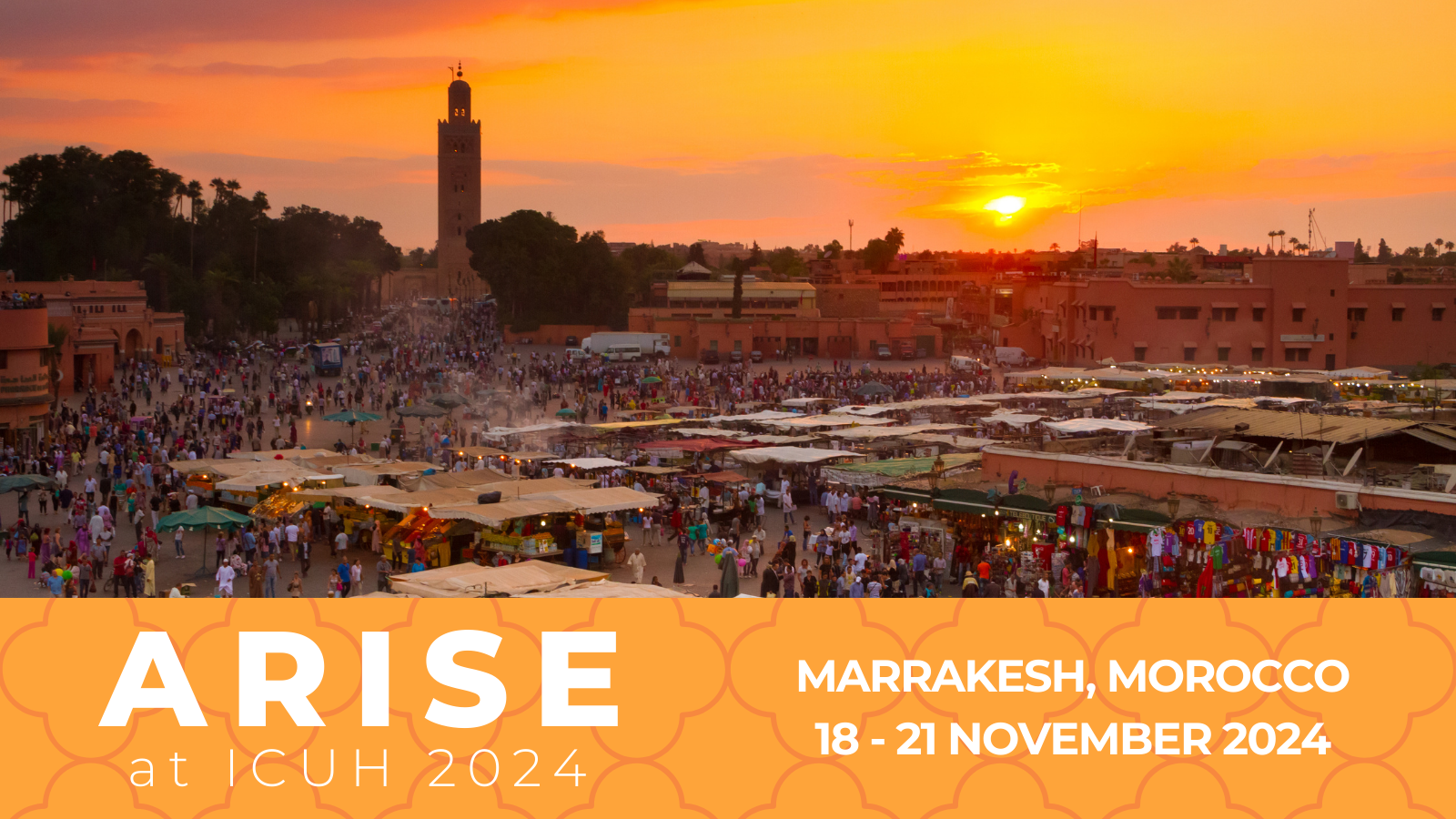
ARISE at ICUH 2024 in Marrakesh, Morocco
Some of our ARISE colleagues will be attending the 20th Annual Conference on Urban Health (ICUH 2024) in Marrakesh, Morocco. Find out more below… ARISE session: Application of community-based participatory research approach with urban marginalised people to develop community-led initiatives for promoting climate resilience and equitable health and well-being: sharing experiences, strategies, resources and tools […]
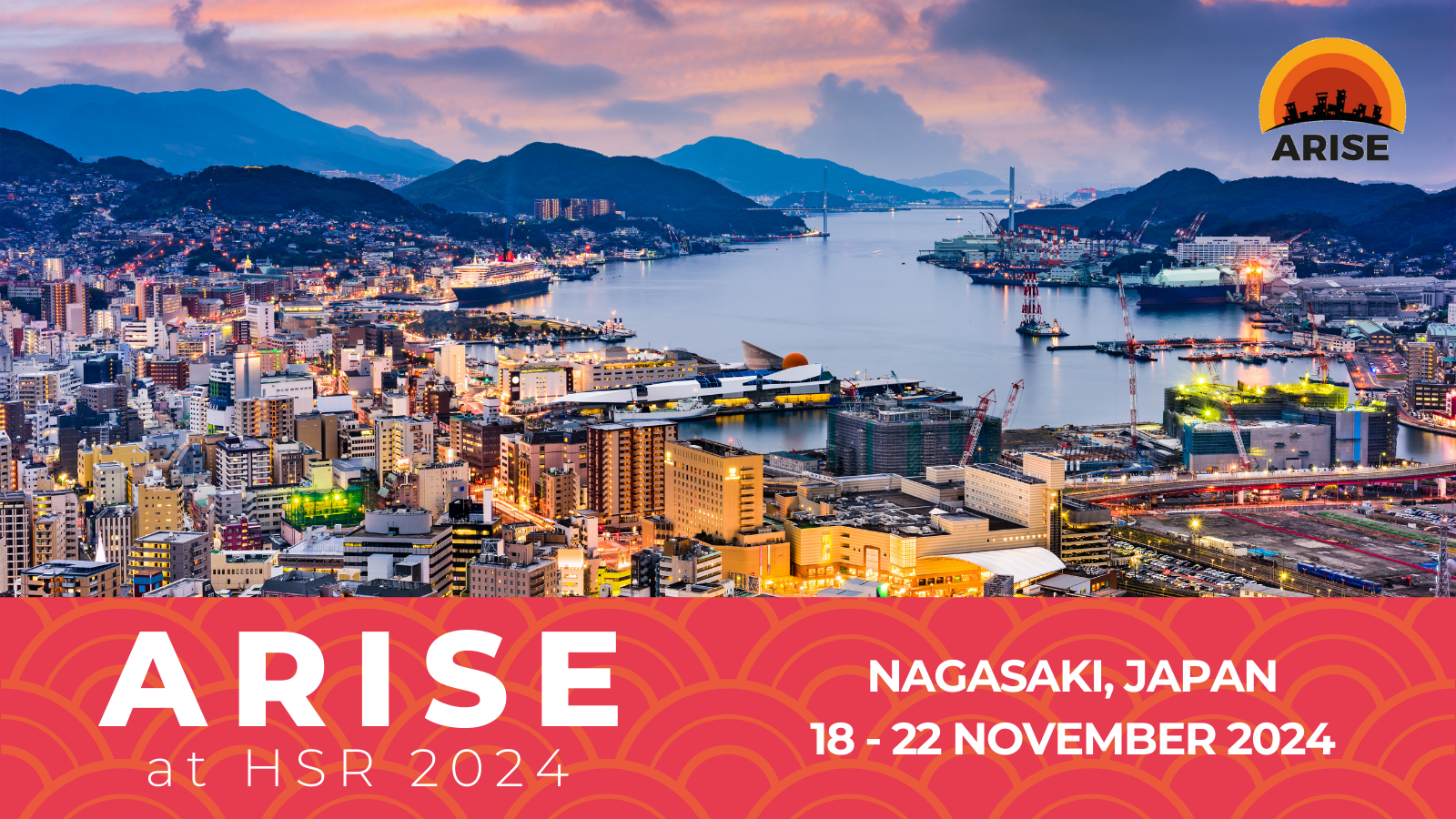
ARISE at HSR 2024 in Nagasaki, Japan
Some of our ARISE colleagues will be attending the 8th Global Symposium on Health Systems Research (HSR 2024) in Nagasaki, Japan. Find out more below… Urban SHADE session: Strengthening the responsiveness of health service provision to extreme weather events for urban marginalised people Wednesday, 20 November 2024, 11.40am Contributors: Inayat Singh Kakar,The George Institute of […]
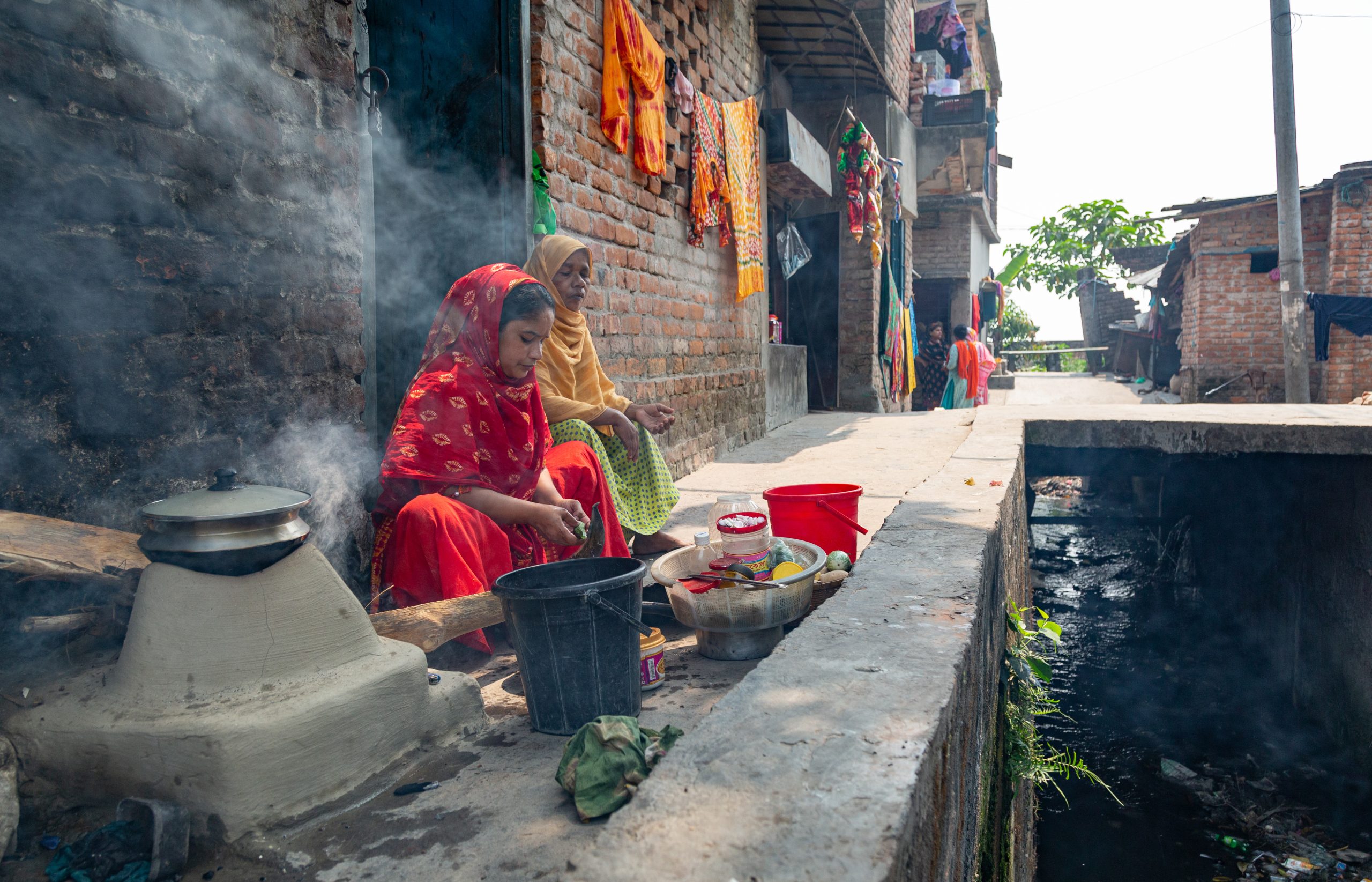
A book review of Sabina Rashid’s ‘Poverty, gender and health in the slums of Bangladesh: Children of Crows’
Hilary Standing and Sally Theobald have reviewed Sabina Rashid’s book ‘Poverty, gender and health in the slums of Bangladesh: Children of Crows’ for the PLOS journal’s Speaking of Medicine and Health blog. “This is an unusual book. It inverts the usual academic conventions. It doesn’t foreground theory or give us a lot of statistics. Instead, […]
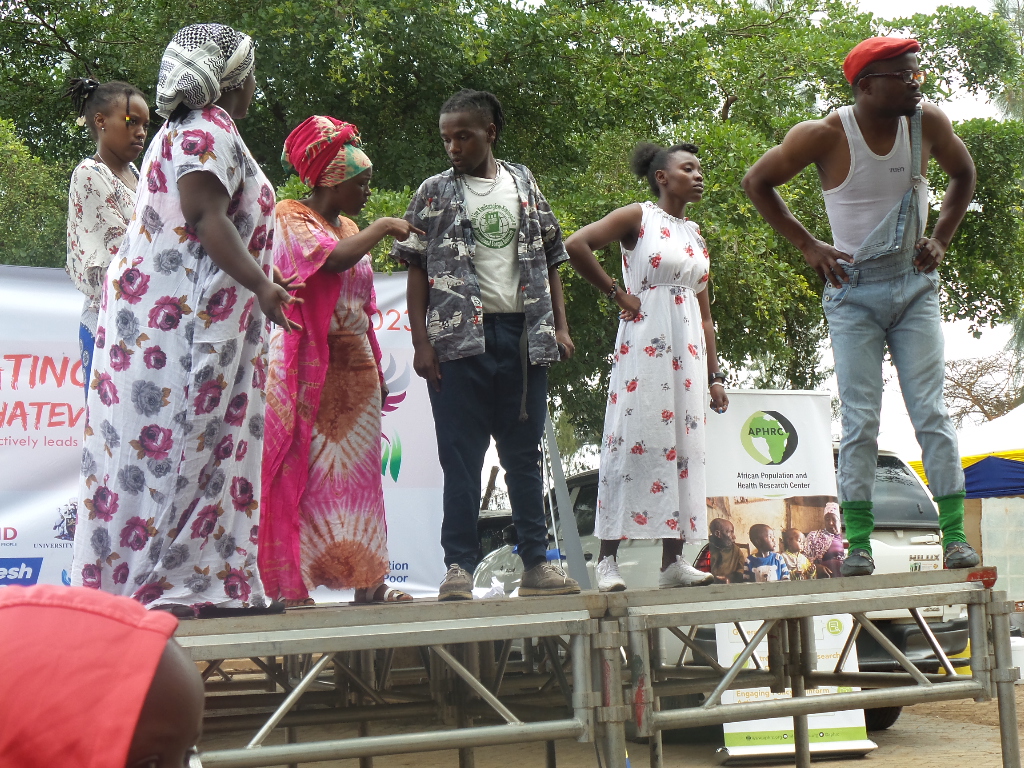
IMPACT STORY: Responding to water, sanitation, hygiene and solid waste management challenges in Nairobi’s informal settlements
Authors: African Population and Health Research Council (APHRC), Kenya with the ARISE Consortium Improving Water Sanitation and Hygiene (WASH) and Solid Waste Management (SWM) practices and access was a key focus of ARISE work by the African Population and Health Center (APHRC) in Nairobi. Background Providing WASH services in informal settlements is a challenge. Clean […]
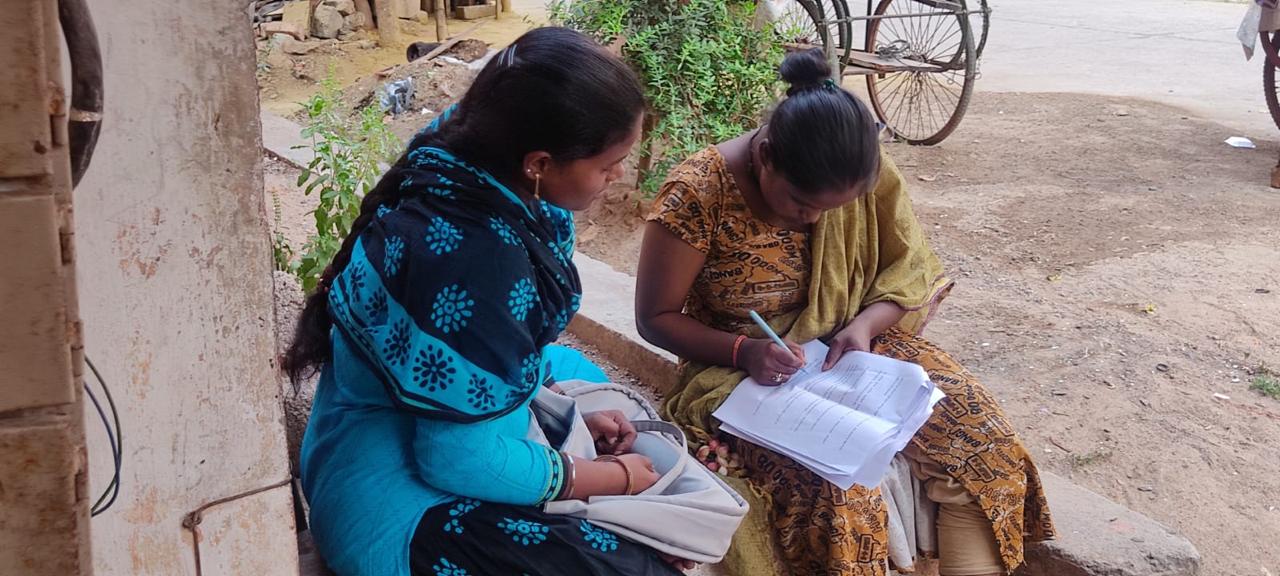
IMPACT STORY: Collaborative generation of data on the health and wellbeing of waste workers in India
Authors: The George Institute for Global Health, India (TGI), with the ARISE Consortium As part of ARISE, researchers from The George Institute (TGI), India worked with local partners and waste worker communities in Delhi and Andhra Pradesh to develop a survey to gather quantitative data on the health and wellbeing (H&WB) of waste workers. This […]
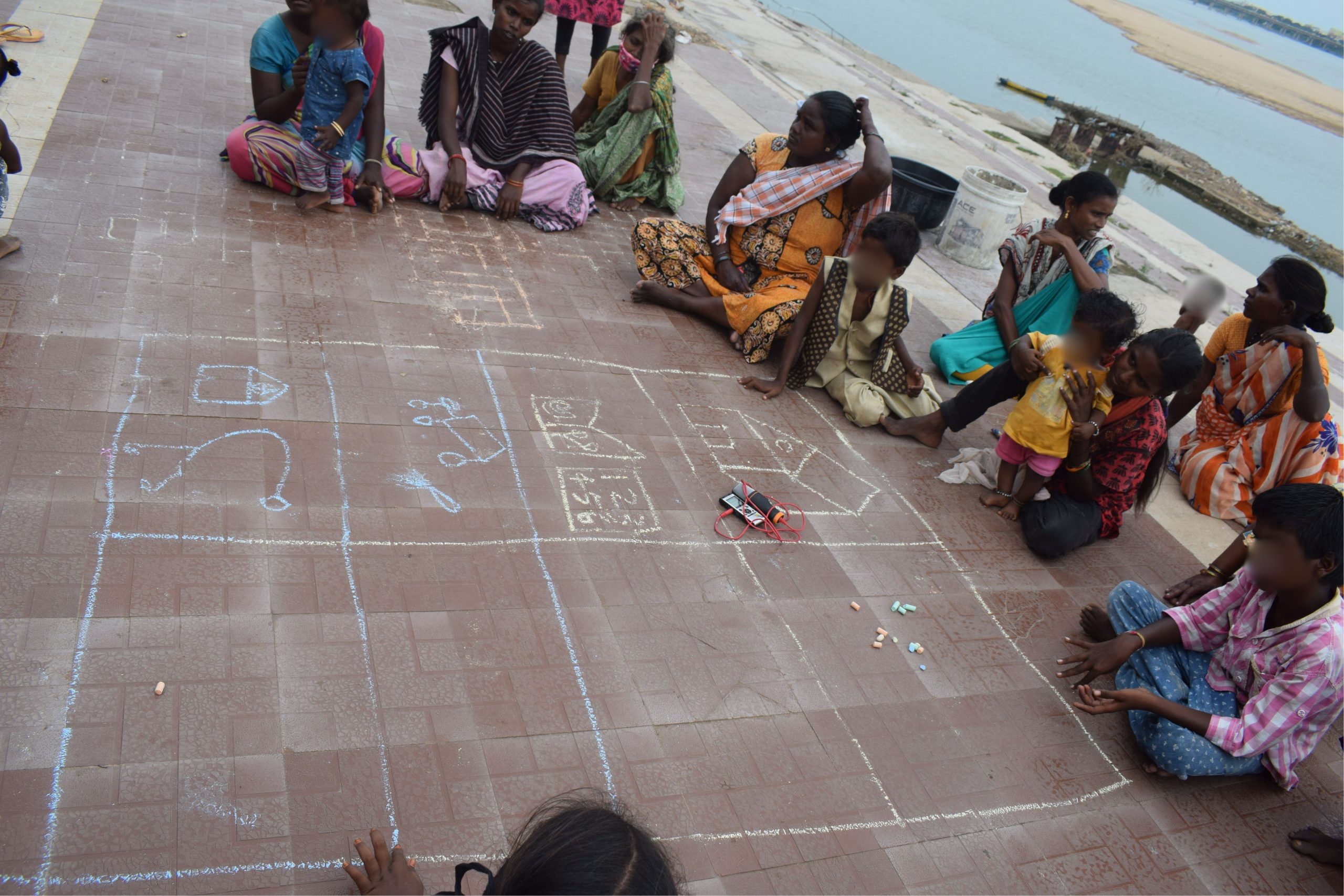
IMPACT STORY – Building hope: Waste pickers unite for secure housing in Andhra Pradesh
Authors: The George Institute, India with the ARISE Consortium Since 2019, ARISE researchers from The George Institute (TGI), India have worked with partner organisations and waste pickers in the informal settlements in Vijayawada-Guntur of Andhra Pradesh to identify and address priority areas to improve their health and wellbeing. During priority-setting activities in 2021, community members […]

IMPACT STORY: How ARISE art projects facilitated community priority setting and communication in Freetown informal settlements
Authors: Sia Tengbe, Kate Hawkins, Ibrahim Juldeh Sesay, Samira Sesay, Ibrahim Gandi, Sulliman Conteh, Abu Conteh, Samuel Saidu, Francis Reffell, Briama Koroma, Joseph Macarthy, Bintu Mansaray ARISE research has taken an interdisciplinary approach to data collection within the broad remit of Community-Based Participatory Research (CBPR). One area of collaboration that has been particularly fruitful is […]

Art as part of storytelling in community workshops in Nepal, with Luke Jerram
In August we had the privilege of once again working with internationally renowned artist Luke Jerram on another community project, this time in Nepal. Working alongside our partners at PHASE Nepal, Luke devised and delivered a workshop with a women’s community group in Khudikola informal settlement, Pokhara, Nepal. As part of the project Luke and our […]
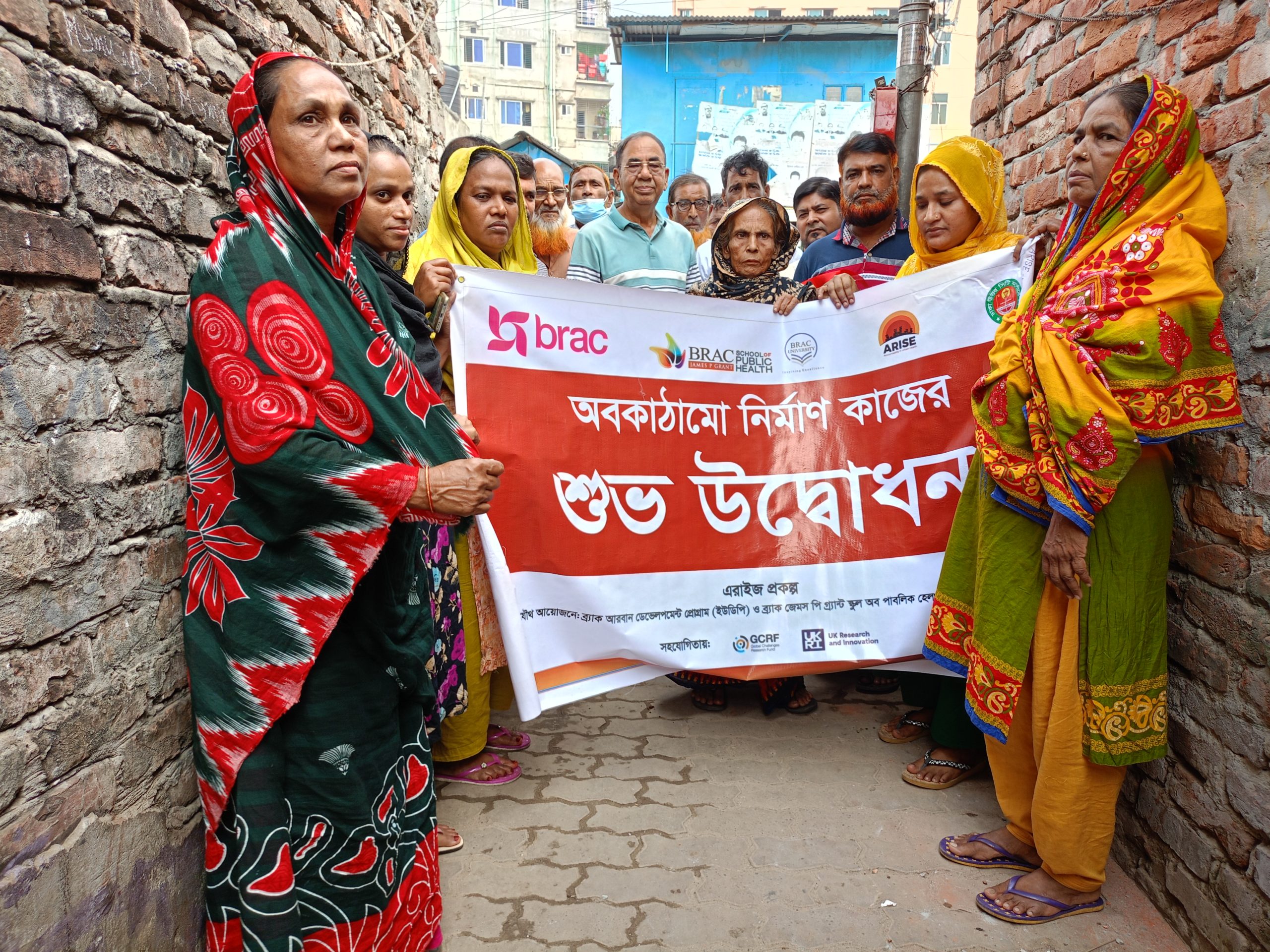
IMPACT STORY: Co-production of community-led water, sanitation and hygiene interventions in informal settlements in Bangladesh
Authors: BRAC James P Grant School of Public Health, BRAC University, Bangladesh with the ARISE Consortium In four informal settlements in Dhaka, Khulna and Satkhira cities of Bangladesh, ARISE partners BRAC Urban Development Programme and BRAC JPGSPH facilitated community action plans (CAPs) led by community members that led to increased ownership and empowerment of communities to […]
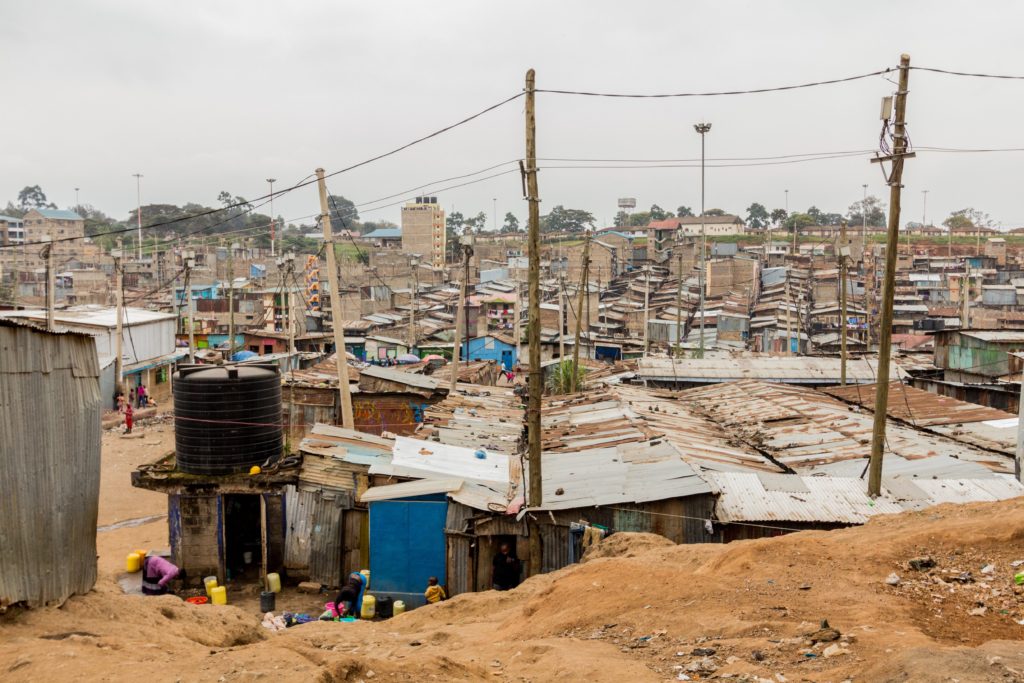
How to conduct community-led action oriented data collection
In this blog Jacob Omondi, Muungano Wa Wanavijiji federation leader, talks us through how best to engage community researchers in data collection, based on his work in the Mathare informal settlement in Nairobi, Kenya. Liverpool School of Tropical Medicine, Slum Dwellers International and Muungano Wa Wanavijiji conducted a study that investigated the enablers and barriers […]
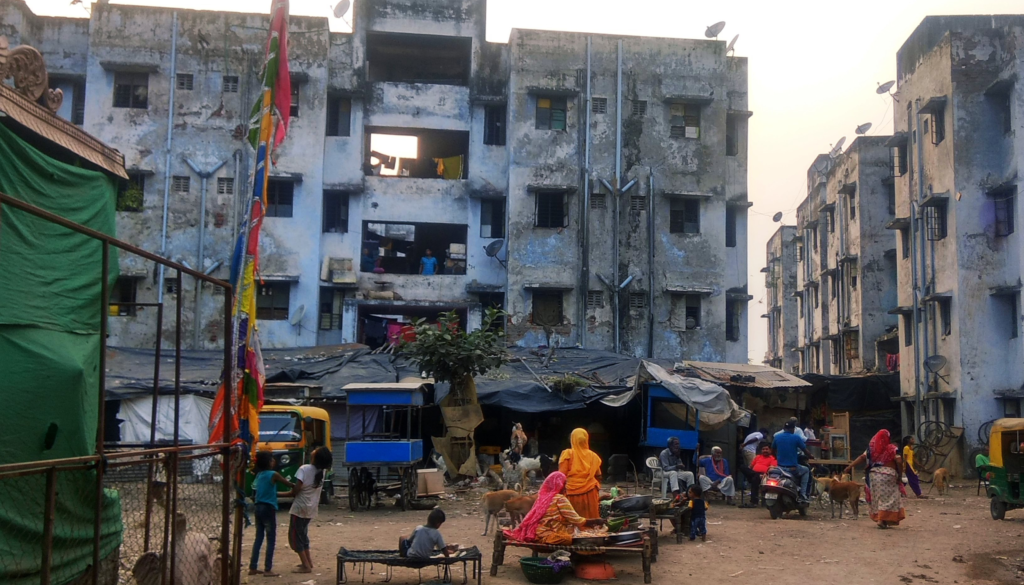
IMPACT STORY: Co-creating accountability and governance in slum relocation sites in Ahmedabad, India
An ARISE Impact Story by SPARC India ARISE’s Community Based Participatory Research (CBPR) approach to working with community members in Ahmedabad relocation colonies contributed to the identification and prioritisation of community needs and the creation of governance structures within fragmented resident welfare associations. Community peer-to-peer exchanges were held between other relocation and resettlement (R&R) sites, […]
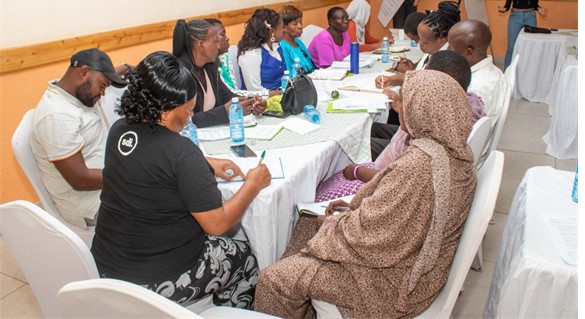
Empowering co-researchers in Mukuru: A community-led approach
Kamila Gojobe (Muungano wa Wanavijiji Community organiser) reports back on a meeting between co-researchers in Nairobi on the participation of co-researchers in research projects. Have you ever considered the unique perspective of the community before embarking on a research project? What does it take for community co-researchers to meaningfully participate in research, and what ensures […]
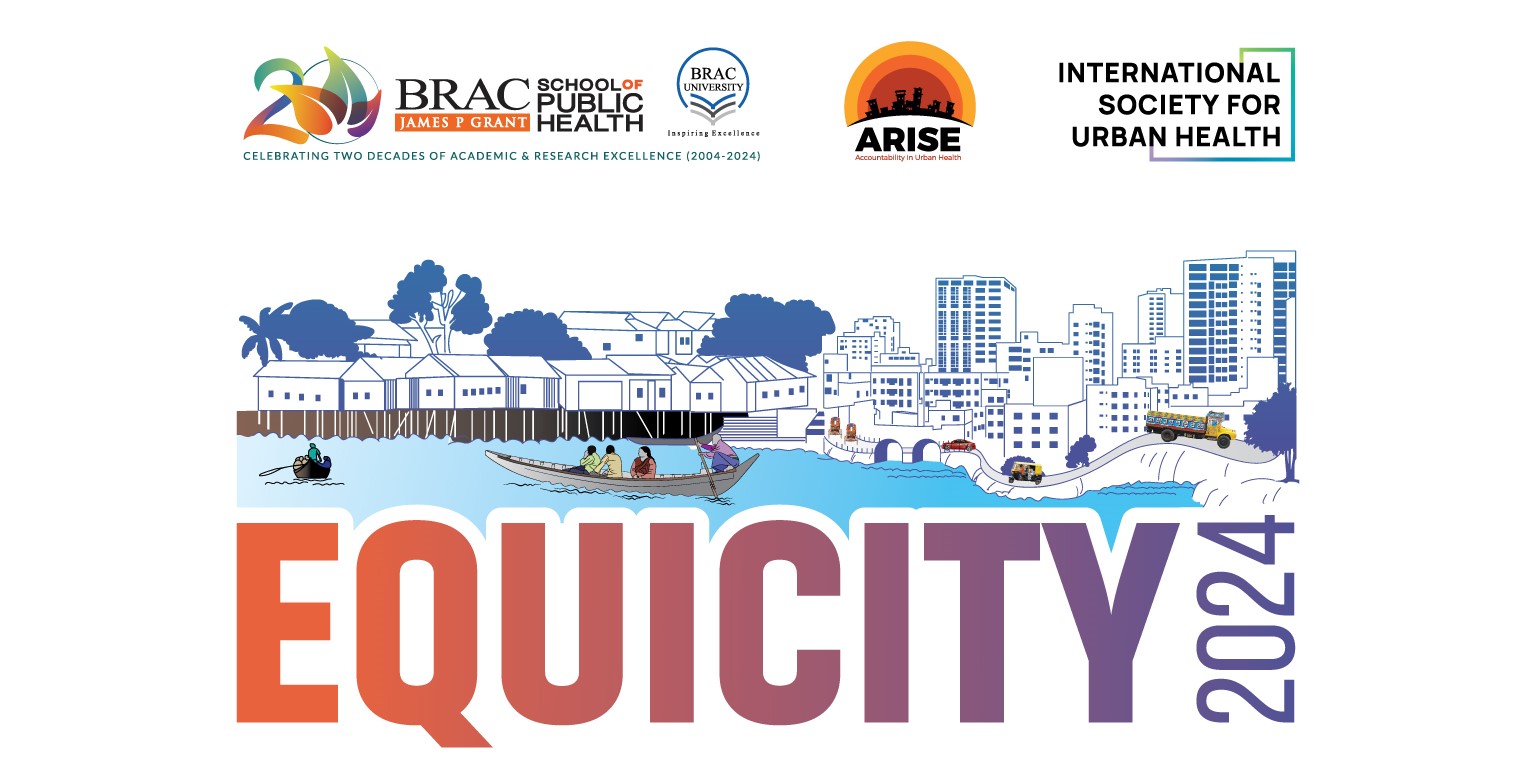
Equicity 2024: Advancing urban health through knowledge exchange from the global south
Please note, due to ongoing protests in Bangladesh the conference dates have been moved, and will now be taking place from 27th to 29th of August. Taking place between the 27th and 29th of August, this conference is a joint collaboration between ARISE, BRAC James P. Grant School of Public Health, BRAC University, and the […]

You’re invited! Launch of Poverty, Gender and Health in the Slums of Bangladesh: Children of Crows
Join us as we celebrate the publication of Prof Sabina Faiz Rashid’s book Poverty, Gender and Health in the Slums of Bangladesh: Children of Crows by Routledge UK. When: Thursday 23 May, 11.30-13.00 (GMT +1) Where: Online, and in person at LSTM, Liverpool We will be joined by the author Prof Sabina Faiz Rashid who […]

Increasing Access to Waste Management Services in Informal Settlements in Lilongwe City, Malawi
In this blog from Zilire Luka, Bernard Kondowe, Jiban Karki and Hayley Stewart we learn more about the project to increase access to waste management services in informal settlements in Lilongwe, the capital city of Malawi. This work is being undertaken by our partners in Malawi, the Centre for Community Organisation and Development (CCODE) and […]

Sharing and learning about public health accountability for informal settlements in Harare, Zimbabwe
Earlier this month, we heard from ARISE colleagues in Zimbabwe working on the ‘Public Health Accountability for Informal Settlements’ project, funded by the ARISE Responsive Fund. Here Teurai Anna Nyamangara, Jiban Karki and Hayley Stewart recap on the work being done in Harare. Project activity Teurai Anna Nyamangara from the Dialogue on Shelter Trust took […]

Publication Mentorship Program for First-Time Women Authors in the Field of HPSR: An interview with Linet Okoth and Sally Theobald
We sat down to speak with Linet Okoth and Sally Theobald who are both members of the ARISE consortium, about their experience taking part in the Publication Mentorship Program for First-Time Women Authors in the Field of HPSR. The program is collaboration between Health Systems Global (HSG), the Alliance for Health Policy and Systems Research […]

Portraits of Strength: Women in Informal Settlements in Nepal
In this blog Anushka Thapa, Alisha Karki, Barsha Rijal, Rudra Neupane, Saugat Joshi and Jiban Karki explore stories of hope and resilience among women living in informal settlements in Nepal. From within informal settlements, where existence can be challenging and difficult, an inspiring group of women share their stories of strength, resilience, positivity and love. […]

Panel for DSA 2024: Call for contributions!
We are excited to announce that ARISE has a panel at the Development Studies Association Conference 2024 at SOAS in London, and we are looking for contributions! Taking place in June this year our panel, Using community-based participatory research for developing equitable partnerships and advancing social justice: Reflecting with the ARISE consortium, will discuss how […]

ARISE at PMAC 2024
We’re excited to announce that our ARISE colleague Wafa Alam, from BRAC James P Grant School of Public Health in Bangladesh, will be attending the Prince Mahidol Award Conference (PMAC 2024) later this month. Taking place in Bangkok, Thailand, from 22 to 27 January, this international conference focuses on geopolitics, human security and health equity […]

Our 2023 AGM in pictures
In November colleagues from across the consortium gathered in Freetown, Sierra Leone for the final ARISE annual general meeting. It was a wonderful week filled with sharing, learning, and reflection. Our colleague Shrutika Murthy from The George Institute collected together images from across the week, and wrote this blog. Additional images and copy from Leah […]

We risk our safety to serve our community: experiences as a Community Health Promoter in Mathare, Nairobi
We risk our safety to serve our community: experiences as a Community Health Promoter in Mathare, Nairobi In this blog Emily Wangari recounts her experiences of being a Community Health Promoter (CHP) in Mathare informal settlement, Nairobi to Rosie Steege. Emily discusses the threats to her safety and security, the mental strain of being a […]

From waiting rooms to revitalised hope: Unveiling the journey of ‘Suraksha’ in Mumbai’s Vashi Naka
This blog by Sweta Das and Parvathy Breeze explores the findings of a health survey in Maharashtra Housing and Area Development Authority. They list the reasons that marginalised community members avoided public health services, instead paying out of pocket for less conveniently located support from the private sector. In Mumbai, an area with high population […]

Intersectionality and urban health – What we heard at ICUH
Earlier this month colleagues from across the consortium attended the International Conference on Urban Health in Atlanta, USA. The team pulled together a fascinating panel presentation that looked at intersectional analyses from across the ARISE consortium. The panel consisted of colleagues from across the consortium, and our four focus countries and was well attended by […]

What we learnt at ICUH 2023
Bachera Aktar, Abu Conteh, Surekha Garimella, Caroline Kabaria, Jiban Karki, Robinson Karuga, Blessing Mberu, Linet Otiso, Samuel Saidu, Inayat Singh Kakar, Rosie Steege, Hayley Stewart, Joe Taylor, Sia Tengbe and Neele Wiltgen Georgi report back on discussions from the International Conference on Urban Health. Earlier this month team members from across ARISE traveled to Atlanta […]

Research, art and storytelling: A showcase of art produced as part of the ARISE consortium
Art can be a powerful tool for storytelling, experience sharing and a catalyst for change. As well as the wealth of research produced by the ARISE consortium, over the course of the project we have also worked with local communities in informal settlements to tell their stories through various art projects. Conversations around urban health […]

ARISE at the International Conference on Urban Health, Atlanta, 2023
We are excited to say many of our ARISE colleagues will be attending or represented at this year’s International Conference on Urban Health taking place in Atlanta, USA, from the 6th to the 9th of November. Our team has had a number of panels, presentations, workshops and posters accepted. We are also going to be […]

Behind the scenes: The journey of gaining access to informal settlements in Kathmandu, Nepal
In this blog ARISE colleagues in Nepal, Saugat Joshi, Alisha Karki, Barsha Rijal, Rudra Neupane and Jiban Karki, discuss the challenges of building trust and gaining access to informal settler communities, in order to undertake research and intervention activities. In Nepal, the term sukumbasi is frequently used in a derogatory manner to describe slum dwellers. […]

Reflections from health camps in the relocation colonies of Ahmedabad, India
Health camps are a key part of SPARC and the community federations’ work across informal settlements and relocation sites in India. In this blog, Aryan Iyer reflects on their role in ARISE and in triggering community collectivisation. Health camps are three-to-five-day long programmes that are held across informal settlements and relocation colonies where federations are […]

Communicating research through art: ‘Power of Light’ case study in Dwarzark, Freetown
Ibrahim Juldeh Sesay, Samira Sesay, Samuel Saidu, Ibrahim Gandi, Abu Conteh and Hayley Stewart report on the Power of Light case study in Freetown, Sierra Leone, where art facilitated communication of research. As informal settlements continue to gain recognition in research and policy discourses, there is also a growing interest in using arts-based methods to […]

ARISE Kenya Photovoice Exhibition
07 September 2023 12:30–14:00 IDS Convening Space Join ARISE at Institute of Development Studies for a lunchtime seminar and exhibition of ‘ARISE Kenya Photovoice’ and find out more about our work on health, wellbeing and accountability in the urban informal settlements of Nairobi. The exhibition includes a selection of images produced using Photovoice, a method used […]

Tuberculosis and community care: SPARC – Mahila Milan’s experience and plans for future
This blog, by SPARC staff, provides an update on their work on TB with relocation colony dwellers in Mumbai. We first realised the challenge of TB at ARISE action sites, when we were distributing food support during COVID-19lockdowns. The connection of TB and poor nutrition was already known to us, since that was the first […]

Addressing the reality of climate change in Mathare
Janet Wairimu speaks about the realities of climate change in the informal settlement of Mathare in Nairobi, and how we might mitigate the biggest effects on those living in slums. Everybody deserves a healthy, safe environment and a sustainable future. The climate crisis is affecting everyone, but the impact is particularly pronounced forthose living in […]

Health and wellbeing surveys: Experience and learning
Blog by SPARC SPARC and its community federations have, for a long time, used research tools such as surveys to learn more about access to basic services in their own and neighboring communities. This is an SDI-wide methodology called ‘Settlement Profiling’, which is now subsumed under a larger campaign called ‘Know your city’. In ARISE, […]

Dry times in the slums: the struggle for water in informal settlements
By Kamila Gojobe Around 71% of the Earth’s surface is covered by water, yet access to clean water remains a challenge for millions of people worldwide. This problem is particularly prevalent in informal settlements, where residents often lack basic amenities, including safe and reliable sources of water. The reasons for this are multifaceted, but one […]

Conflicting realities: community vs. stakeholder perspectives
Beatrice Egid and Pavani Pendyala There is an assumption in much of qualitative research that individuals subjectively construct their own realities based on the way they experience the world. While the role of the researcher is to try and understand these realities, it is hard or impossible to arrive at a definitive knowledge of a […]

Changing perceptions: How I used to think of the residents of urban informal settlements
Md Sohrab Hossen discusses his changing perceptions of people who live in informal settlements in Bangladesh, and how working with ARISE has helped him address and unpack the many stereotypes people have about the urban poor. Bostir polapan [slum children] is slang used by local people in urban areas of Bangladesh, particularly in Dhaka. It […]

Is housing still a major issue in slums?
Jacob Omondi reports on housing issues in Mathare slum, Kenya. Informal settlements can be dysfunctional due to lack of organization as well as neglect by the Government when it comes to channeling funding and resources towards housing development. Allocating resources to support housing should be given more attention in order to eliminate social and structural […]

The disconnect between the definitions and the realities of slums
Sadaf Khan reports on the disconnect between the UN’s definition of slums, and the diverse realities of these informal settlements. UN Habitat’s definition of slums is comprised of what are known as the “five deprivations”; lack of i) access to water, ii) access to improved sanitation, iii) sufficient living area, iv) housing durability and v) […]

Webinar review: An intersectional and gendered approach to health and wellbeing in informal settlements
Lynda Keeru, Hayley Stewart and Kate Hawkins report back on an ARISE and CHORUS consortia hosted webinar, ‘An intersectional and gendered approach to health and wellbeing in informal settlements.’ Informal settlements are now a widespread reality in cities globally and particularly common in low- and middle-income countries, housing millions of people. The residents of these […]

Community exchanges: Powerful peer learning and knowledge sharing
Community exchanges are crucial, as they enable communities to observe how others in similar situations have resolved their issues. By identifying similarities, they can learn from each other and test new solutions. Community exchanges also foster a sense of solidarity among communities by highlighting that many others also face similar challenges. This shared understanding helps […]

Local-level governance of COVID-19 pandemic management in selected informal urban settlements in Dhaka city, Bangladesh: Findings from Governance Network Mapping
By Bachera Aktar Local-level governance of COVID-19 pandemic management in selected informal urban settlements in Dhaka city, Bangladesh: Findings from Governance Network Mapping The poster presented findings from a community-based participatory research method “Governance Network Mapping” that explored the local-level governance of COVID-19 pandemic response in two informal urban settlements in Dhaka city. It was […]

Water: A story of voice, agency, harmony and leadership among women in Itagacha, Satkhira in Bangladesh
By Adrita Rahman, Muhammad Riaz Hossain and Sohrab Hossain “The men do not have much of a role when it comes to collecting water for the households,” said one of the older men from Purbopara, Itagacha, Satkhira, Bangladesh during our discussion with the community members on water, sanitation, and hygiene (WASH) issues. Scarcity of safe […]

Medical camps as research tools
By Vinodkumar Rao, Puja Solanki & Sheela Patel Traditionally, medical camps by non-governmental organisations (NGOs), corporate sponsors, foundations, and other charitable institutions are seen as acts of charity. The communities that the camps support also see them as short, solidarity events. Weak public health systems, particularly those in preventive health, necessitate such acts of charity. […]

Pandemic Portraits: Disability and COVID-19 in Bangladesh and Liberia
COVID-19 has changed the world as we know it. However, the pandemic has significantly affected the lives of people with disabilities, with many facing additional barriers in access to services, increased isolation and increased risks of poor health and social outcomes. To strengthen pandemic responses for all, it is crucial to understand the impact of […]

One size does not fit all: Learnings from a Diabetes Storytelling Workshop
By Sarah Iqbal In 2021, I took part in a diabetes storytelling workshop that supported awareness building efforts to prevent diabetes in India. About fifty participants – a diverse group of writers, researchers, and media artists – gathered to develop proposals for creative solutions for diabetes prevention. These proposals would then be presented to a […]

Pandemic Portraits exhibition launch
Join us for the launch of ‘Pandemic Portraits’, a photovoice exhibition, hosted by ARISE, telling the stories of people with disabilities in Liberia and Bangladesh living through the COVID-19 pandemic. This project was funded by RSTMH and completed in collaboration with REDRESS, Liverpool School of Tropical Medicine; the James P Grant School of Public Health, Bangladesh; […]

Count down our most popular posts and pages from 2022
As we move into the new year, we wanted to reflect on a very busy 2022 for ARISE. To recap on some of our work from this year we are counting down our top 10 most popular blog posts and pages on the ARISE website from the last year. 10 – Why does youthful and […]

Performing arts: Opening pathways to community mobilisation and action
By Hemanth Chandu Over the centuries, performing art (PA), such as drama, songs and street theatre, has raised awareness on immediate issues that affect communities and regenerated the community’s approach towards the issues they face. But by sharing stories in ways that facilitate constructive dialogue and reflection, PA also has the inherent capacity to transcend […]

Facilitating Dialogue between Informal Settlement Residents and Governance Actors
By Sabrina Fatema Chowdhury, Research Associate, BRAC JPGSPH “It is not possible for any one type of organisation to support us [residents of informal settlements]. The government and private organisations need to work together.” Tanvir Islam, a community member and a co-researcher, shared his thoughts during the regional learning-sharing workshops under the ARISE Responsive Fund […]

World Cities Day: ARISE acts local to go global
On 31 October 2022, the world will mark World Cities Day, with the theme ‘Act Local to Go Global’ highlighting the critical role of local action for achieving the sustainable development goals by 2030. In ARISE, the ‘local’ is central to our research, which aims to enhance accountability and improve the health and wellbeing of […]

An audience with Bachera Aktar, Emerging Voice for Global Health 2022
Leah Murphy with Bachera Aktar Bachera Aktar, an ARISE researcher and Assistant Director of the Centre of Excellence for Gender, Sexual, and Reproductive Health and Rights at the James P Grant School of Public Health has recently been selected for the Emerging Voices for Global Health (EV4GH) programme, an innovative multi-partner blended training programme for […]

Join us at the Seventh Global Symposium on Health Systems Research
We’re delighted to join our colleagues at the Seventh Global Symposium on Health Systems Research (HSR2022) which will take place in Bogota, Colombia from October 31 – November 4, 2022, bringing together approximately 2,000 health systems researchers, policymakers and practitioners from around the world. ARISE will be running the following sessions and we’d love to […]

Interview with Linet Okoth
In January 2022, Health Systems Global (HSG) and the Alliance for Health Policy and Systems Research (The Alliance), in close collaboration with Health Policy and Planning, invited applications from early-career women based in low- and middle-income countries (LMICs) working on health policy and systems research (HPSR), looking to publish their research for the first time in a global […]

Join us at the 2022 International Conference on Urban Health!
The International Society for Urban Health (ISUH) is the only global non-governmental organization solely focused on advancing urban health and health equity by addressing the broader determinants of health. Through its annual global conference and program activities, the ISUH serves as a platform for interdisciplinary academic researchers and educators, practitioners and policymakers from multiple sectors […]

World Mental Health Day
According to WHO, one in eight people worldwide live with mental health issues. This year’s World Mental Health Day that will be marked on the 10th of October will draw focus on the need to prioritize mental wellbeing. In this blog Faith Munyao and Lynda Keeru reflect on our work in Kenya to improve mental […]

Community-led monitoring and evaluation
Michelle Koyaro, Milka Kori, Rogers Otieno and Elvira Songoro explore how Muungano Wa Wanavijiji used the applied the Ripple Effect Mapping tool to evaluate work in ARISE. Organizations use different monitoring and evaluation tools and frameworks to learn from experience and improve practice and activities. However, these monitoring and evaluation systems/frameworks frequently fail to provide […]

Why is safeguarding during data collection important?
In this blog Jacob Omondi and Rogers Abala explore safeguarding as part of the ARISE research work. Muungano Wa Wanavijiji believes safeguarding is an important element to factor in during data collection within the informal settlements. Muungano aims to protect co-researchers from harm. Before embarking on data collection, identified co-researchers undergo rigorous training on safeguarding […]

The formality of informality
By Ivy Chumo, Abu Conteh, Smiriti Jukur, Lilian Otiso, Samuel Saidu and Linda Waldman In recent years, the term ‘informality’ has become increasingly popular. Urban informality refers to that which is not formal and is closely linked to terms such as the informal economy, informal settlements, informal work, housing and governance. ‘Urban informality’, Roy argues, […]

The formality of informality
By Ivy Chumo, Abu Conteh, Smiriti Jukur, Lilian Otiso, Samuel Saidu and Linda Waldman In recent years, the term ‘informality’ has become increasingly popular. Urban informality refers to that which is not formal and is closely linked to terms such as the informal economy, informal settlements, informal work, housing and governance. ‘Urban informality’, Roy argues, […]

The Dandora Dumpsite and marginalized people in Korogocho
Scores of African children have been orphaned and others abandoned by their parents for reasons such as poverty, alcoholism, illnesses and death. Unfortunately, these make it challenging for children to realise their rights such as the attainment of an education. At 17 years old, *Lucy is already fending for her family and working hard […]

The Dandora Dumpsite and marginalized people in Korogocho
Scores of African children have been orphaned and others abandoned by their parents for reasons such as poverty, alcoholism, illnesses and death. Unfortunately, these make it challenging for children to realise their rights such as the attainment of an education. At 17 years old, *Lucy is already fending for her family and working hard […]

Eye-opening moments when interning with SPARC
In this blog Puja Solanki, a Masters in Development student from Azim Premji University, Bangalore, feeds back on their internship with our partner SPARC, in India. My six weeks interning with SPARC have been educational, inspiring, and novel. I spent this time with women leaders belonging to five rehabilitated communities in and around Govandi, Mumbai. […]

Learning Exchange: Community Empowerment to Address Health Related Injustices in Low Income Communities
Nicera Wanjiru writes about a recent successful knowledge exchange between ARISE colleagues in Kenya and Sierra Leone, where many different approaches were shared including utilising physical addressing systems, savings culture and the ripple effect of community mapping. “The knowledge that we have acquired in the course of this learning exchange is not going to gather […]

Community based radios in research validation and dissemination
Caroline Kabaria, Ivy Chumo and Blessing Mberu; African Population and Health Research Center (APHRC), Kenya. Community radio is a short-range, not-for-profit radio station or channel that caters for the information needs of people living in a particular locality, in the languages and formats that are most adapted to the local context. The radio station serve […]

Bloody inconvenience: Menstrual health in waste worker communities
Menstruation presents several challenges in the areas of physical and mental health, comfort, social ease, and productivity for many women. Women with socioeconomic capital, financial resources, employment benefits and security, agency, and autonomy are able to navigate menstruation using acute and longer-term strategies of safe and discreet menstrual hygiene management, exercise of appropriate social arrangements, […]

Bloody inconvenience: Menstrual health in waste worker communities
Menstruation presents several challenges in the areas of physical and mental health, comfort, social ease, and productivity for many women. Women with socioeconomic capital, financial resources, employment benefits and security, agency, and autonomy are able to navigate menstruation using acute and longer-term strategies of safe and discreet menstrual hygiene management, exercise of appropriate social arrangements, […]

ARISE learning event at the Gobeshona Conference – A report and reflection
By Vinodkumar Rao On 31 March 2022, SPARC’s ARISE virtual session at the 2nd Gobeshona Global Conference took place. Vinodkumar Rao from SPARC chaired the 90 minute session titled “Urban Marginality and Resilience Expectations – learning from ARISE”. Presenters included Shrutika Murthy and Inayat Kakkar from TGI, Wafa Alam from BRAC – JPGSPH and Aditya […]

Reflections of Ripple Effect Mapping: The Co-researcher’s Experiences
By Inviolata Njeri, Neele Wilten-Georgi and Lynda Keeru If you are looking to know whether and how your research project has been impactful, look no further. Ripple effect mapping derives its name from the concept of throwing a stone in a pool of water that gives rise to concentric waves emanating from the point at […]

A candid talk on the mental health issues in Viwandani and Korogocho slums in Nairobi, Kenya
Mental health awareness week falls annually in May. Lynda Keeru and Inviolata Njeri kick off ARISE conversations on mental health with this blog about our work in Kenya Despite of the continual gains and advances in mental health awareness, research and treatment, there is still a lot to be done and covered. To this end, […]

Ensuring the last mile connectivity in the Mumbai COVID vaccination drive
The administration of the COVID vaccine has been patchy throughout the world. While many in the global north are considering their second booster shots, several people in the global south remain unvaccinated (even with a single dose) of COVID vaccine. Even within countries, such as India for example, there are large disparities in vaccination across […]

ARISE featured on the Connecting Citizens to Science podcast!
Effective health research is built upon equitable partnerships between researchers and communities. In Connecting Citizens to Science, Dr. Kim Ozano and Robinson Karuga, interview expert researchers from across the globe who engage with communities in their research. Series 4: Research for social change within urban informal communities Series 4 of Connecting Citizens to Science is supported […]

ARISE featured on the Connecting Citizens to Science podcast!
Effective health research is built upon equitable partnerships between researchers and communities. In Connecting Citizens to Science, Dr. Kim Ozano and Robinson Karuga, interview expert researchers from across the globe who engage with communities in their research. Series 4: Research for social change within urban informal communities Series 4 of Connecting Citizens to Science is supported […]

The ‘romanticization of resilience’ – learning from ARISE
Lynda Keeru documents discussions in the ARISE panel of the Gobeshona Global Conference on Research into Action. Speakers included Vinod Rao, Shrutika Murthy, Inayat Kakkar, Wafa Alam, Dr Aditya Pradyumna and Smruti Jukur. Vinod introduced the session and explained to the participants some of the issues and themes that the presenters would be addressing – urban […]

The ‘romanticization of resilience’ – learning from ARISE
Lynda Keeru documents discussions in the ARISE panel of the Gobeshona Global Conference on Research into Action. Speakers included Vinod Rao, Shrutika Murthy, Inayat Kakkar, Wafa Alam, Dr Aditya Pradyumna and Smruti Jukur. Vinod introduced the session and explained to the participants some of the issues and themes that the presenters would be addressing – urban […]

Urban marginality and resilience expectations – ARISE at the Gobeshona Global Conference
The Gobeshona Global Conference on Research into Action is taking place from the 27 March to the 1 April. GOBESHONA provides an opportunity to bring together multidisciplinary scholars, policy-makers, researchers and practitioners from around the world to share their knowledge, research, and practical experiences on climate change issues with a broad range of themes, focusing […]

A scoping review on inequities in healthcare costs in cities
By Noemia Siqueira, Helen Elsey, Jinshuo Li, Penelope A Phillips-Howard, Zahidul Quayyum, Eliud Kibuchi, Md Imran Hossain Mithu, Aishwarya Vidyasagaran, Varun Sai, Farzana Manzoor, Robinson Karuga, Abdul Awal, Ivy Chumo, Vinodkumar Rao, Blessing Mberu, John Smith, Samuel Saidu, Rachel Tolhurst, Sumit Mazumdar, Laura Rosu, Sureka Garimella Marginalised urban residents living in slums and other areas […]

Building health alliances to improve TB outcomes in Mumbai
On the occasion of World TB Day 2020, Kate Hawkins and Vinod Rao reflect on ARISE work in India. According to the World Health Organization: “In 2020, 86% of new TB cases occurred in the 30 high TB burden countries. Eight countries accounted for two thirds of the new TB cases: India, China, Indonesia, the Philippines, […]

The Voice Quilt: Amplifying the voices of waste worker communities
World Day of Social Justice gives us the opportunity to reflect on and highlight the need for social justice for marginalised communities like those involved in waste work in urban spaces. On this day, ARISE is pleased to launch the Voice Quilt – a novel multi-media project that brings the voices of individual waste workers […]

A research journey that brought power theories to life: Lessons from Korogocho, Kenya
Maria M. Muthoki, Veronicah Mwania and Beate Ringwald report back on the Korogocho ALIV[H]E study which involved four researchers (three Kenyans and one European) and eleven community co-researchers from Korogocho. A participatory research journey that brought power theories to life and changed all who worked on it. From August 2020 to July 2021, we met […]

A research journey that brought power theories to life: Lessons from Korogocho, Kenya
Maria M. Muthoki, Veronicah Mwania and Beate Ringwald report back on the Korogocho ALIV[H]E study which involved four researchers (three Kenyans and one European) and eleven community co-researchers from Korogocho. A participatory research journey that brought power theories to life and changed all who worked on it. From August 2020 to July 2021, we met […]

Supporting adolescent mothers in Nairobi’s informal settlements
This blog by Lynda Keeru and Kate Hawkins (Pamoja Communications) reports back on the recent webinar – ‘Empowering urban adolescent mothers using digital tools’ – which was organized by the USAID Urban Health Community of Practice. The webinar on urban adolescents showcased implementation research to ensure rapid knowledge and learning from evidence. It featured speakers […]

Supporting adolescent mothers in Nairobi’s informal settlements
This blog by Lynda Keeru and Kate Hawkins (Pamoja Communications) reports back on the recent webinar – ‘Empowering urban adolescent mothers using digital tools’ – which was organized by the USAID Urban Health Community of Practice. The webinar on urban adolescents showcased implementation research to ensure rapid knowledge and learning from evidence. It featured speakers […]

Why does youthful and dynamic energy lead to crime in Mathare?
In this blog post Jacob Omondi explains issues leading to youth related crime and violence in the Mathare Valley area of Nairobi, and explores some solutions for helping youth find meaningful ways to stay away from crime and earn a living. Mathare Valley is an informal settlement compromised of 13 villages, located approximately 9.1kms East […]

Community entry in Nairobi
In the final blog in this series, our ARISE co-researchers in Nairobi – John Mutinda, Lydia Akwabi, Judith Achieng, Famuel Omwaka, Daniel Obiero, and Joel Mburu – explain how they worked with participants to create and analyse governance diaries, undertaken. This blog was supported by Caroline Kabaria, Ivy Chumo and Blessing Mberu. On our first […]

Climate change and informal settlements on World Cities Day
On World Cities Day, Kate Hawkins and Lynda Keeru explore how climate change is affecting lives of people in informal settlements. The 2021 theme of World Cities Day is Adapting Cities for Climate Resilience. ARISE is focused on supporting people in urban informal settlements to claim their rights, particularly the right to health. Given that environmental […]

Governance Diaries
In the fourth blog in this series, our ARISE co-researchers (John Mutinda, Lydia Akwabi, Judith Achieng, Famuel Omwaka, Daniel Obiero, and Joel Mburu) explain how they worked with participants to create and analyse governance diaries, undertaken as part of the social and governance terrain study. Supported by researchers (Caroline Kabaria, Ivy Chumo and Blessing Mberu). […]

Ground Truthing
In the third blog in our series, our ARISE co-researchers (John Mutinda, Lydia Akwabi, Judith Achieng, Famuel Omwaka, Daniel Obiero, and Joel Mburu) explain their ground-truthing exercise, undertaken as part of the social and governance terrain study. Supported by researchers (Caroline Kabaria, Ivy Chumo and Blessing Mberu). Our ground truthing exercise involved confirming and validating […]

Social mapping in Nairobi
In the second blog in this series, our co-researchers (John Mutinda, Lydia Akwabi, Judith Achieng, Famuel Omwaka, Daniel Obiero, and Joel Mburu) explain the social mapping exercise they embarked on as part of the social and governance terrain study. They were supported by researchers (Caroline Kabaria, Ivy Chumo and Blessing Mberu). The social mapping exercise […]

Community profiling in Nairobi
Our co-researchers (John Mutinda, Lydia Akwabi, Judith Achieng, Famuel Omwaka, Daniel Obiero, and Joel Mburu) talk you through their approach to community mapping and charting social and governance terrain. They were supported by researchers (Caroline Kabaria, Ivy Chumo and Blessing Mberu). This process began with community profiling, which involved community statutory and voluntary organisations identifying […]

Uncovering the voices of the most vulnerable in health systems is important
The President’s Lecture 2021 webinar hosted by RSTMH brought about some thought provoking conversation and presentations from Professor Sally Theobald and her colleagues, Abriti Arjyal, Bachera Aktar and Zeela Zaizay. The webinar was a great opportunity to share learning on analysing and addressing intersecting inequities in global health across different contexts, projects and health issues. […]

“We choose food” — two young people’s stories about how the pandemic has affected their lives
Nicera Wanjiru (Muungano Kibera) conducts a double interview with two young people of the same age who live in Kibera informal settlement in Nairobi. How have their lives have been affected by the Covid-19 pandemic? The announcement of the first case of Covid-19 brought Kenya to a standstill. Cessation of movement, curfews, lockdowns were never […]

COVID-19, the epidemiological and social pandemic
It is not only an epidemiological pandemic but a social one, that has uncovered the perpetual global social, economic, health and political inequalities. Lynda Keeru and Kate Hawkins report back from a recent webinar, ‘Exposing the cracks: COVID-19 and global inequality’. Hosted by The Gender, Justice and Security Hub this event brought together researchers to […]

Challenging the status of women and youth in the WASH sector in Kenya
Kenya’s progress towards achieving Sustainable Development Goal 6 has been slow, with only 59% and 29% water and sanitation coverage, respectively (JMP, 2019). Sewered sanitation is currently available to only about 3.9 million people in 26 counties with 61% of these being within Nairobi County. 21 counties lack any systems for waste management (WASREB, 2020), […]

Mapping informal settlements in Sierra Leone: Researchers and co-researchers experiences in mapping urban spaces
This blog was co-produced by researchers and co-researchers in Sierra Leone to share our experiences mapping urban marginalized spaces. We conducted GIS mapping of three informal settlements to identify key landmarks, physical features, environmental hazards, health risk areas and social groups. The purpose of this work is to use the map to aid participatory data […]

Supporting communities in the COVID-19 pandemic: ARISE community researcher experiences
We have been conducting participatory action research in three informal urban settlements (commonly known as ‘slums’) of Dhaka city since 2019. These three areas are Kalyanpur Porabosti, Nama Shyampur and Dhalpur slums. Nishika Samaddar Tumpa, Jeevan Ahmed Jumman, Bilal Hossain Jewel – who are co-researchers in the project – reflect on their experiences during COVID-19. […]

Nairobi’s CHVs to receive monthly stipend
Rosie Steege, Jane Wairutu and Linet Okoth report back on the passing of the Nairobi City County Community Health Services Act in June 2021 – welcome news for Nairobi’s Community Health Volunteers (CHVs) who have waited almost two years since the Bill’s inception. The Bill sees Nairobi’s CHVs entitled to receive a monthly stipend of […]